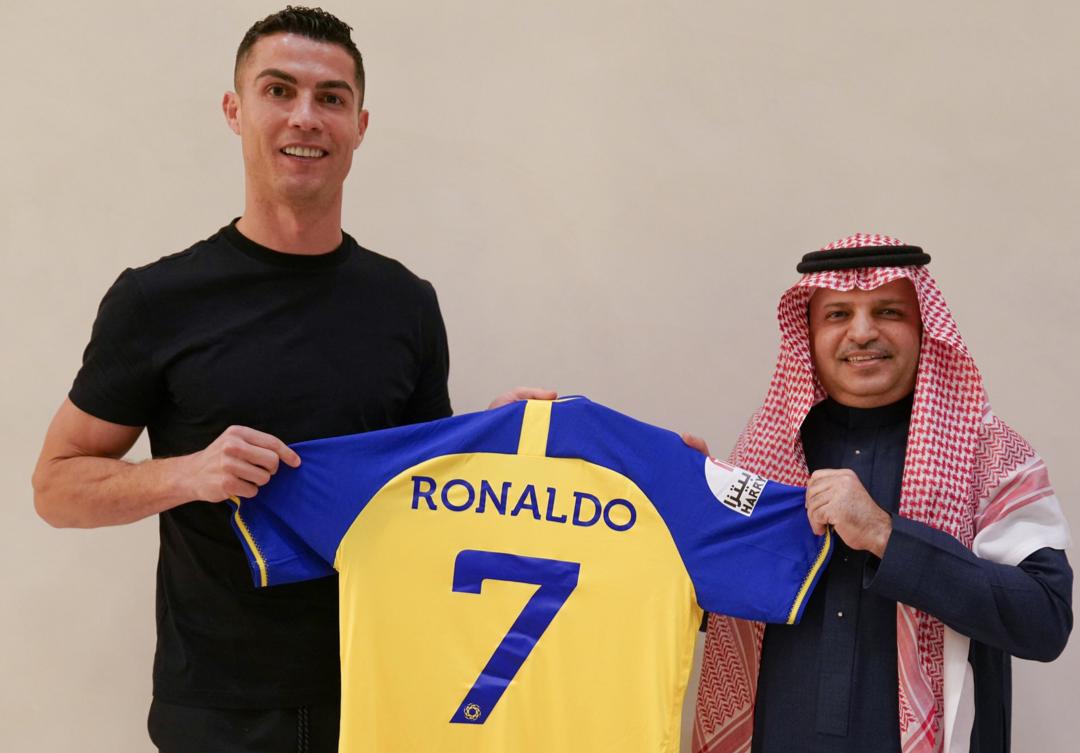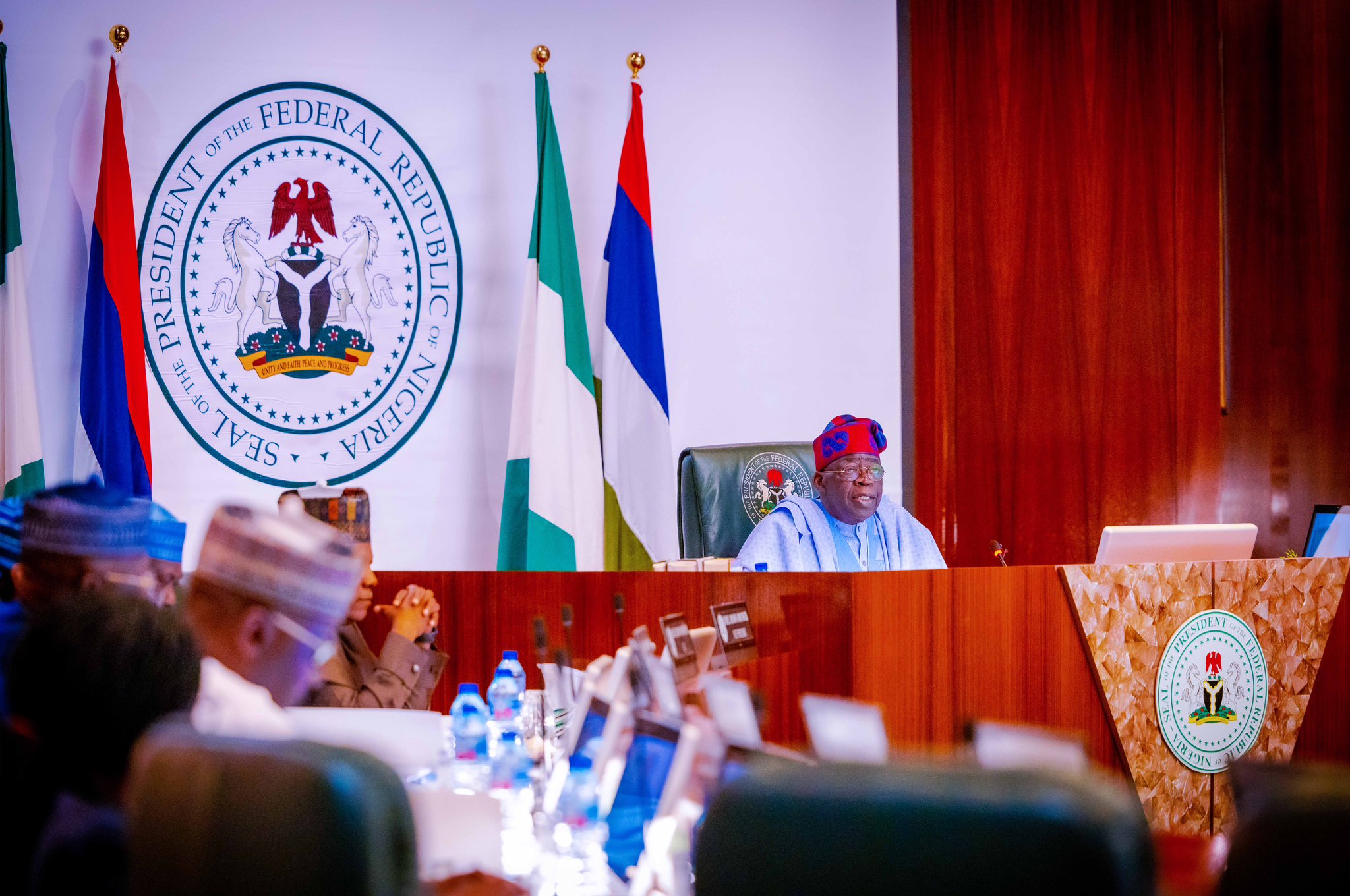Ronaldo joins Saudi Arabia's Al-Nassr in '€200m per year' deal
Before December 15, 1995, out-of-contract football players (also known as “free agents”) were not free to sign for a new club of their choice unless and until a transfer fee was agreed to be paid to the former club. For instance, between the early and mid-90s, former Belgian international footballer, Jean-Marc Bosman, sacrificed his footballing career to fight for the economic right of players, which later reshaped the contractual relationship between clubs and players and the transfer system to make it the way we have it today, hardly did he or anybody envisage the dizzying amounts being paid today; both as weekly wages and transfer fees for footballers.
For those who might have forgotten, did not know or were too young to know before 1995, if a player’s contract expired, his current club would still have to sanction a move, subject to a transfer fee being paid by the club intending to sign him on, to the former club, before he could join the new club. So, when, in 1990, Bosman’s contract with RFC Liege (of Belgium) expired, the club demanded a fee of £500,000 from the French side, Dunkerque, before he could join them. The midfielder felt something was wrong, that his economic rights were being trampled upon. He then approached the European Court of Justice (ECJ) for redress. But by the time the landmark ruling by the European Court of Justice in Luxembourg, was delivered on December 15, 1995, in what is today referred to as “the Bosman Ruling”, he had lost his passion for the beautiful game and slumped into alcoholism as an escape route from the concomitant disappearance of means of livelihood. Neither he nor anybody knew, then, that by that litigation, he was unlocking the financial tap that would be gushing out a massive volume of fortunes. Bosman joined Standard Liege in 1983 before moving to RFC Liège in 1988.
The global union of professional footballers, FIFPRO, reports that Bosman had played for two years at RFC Liege when his contract was about to expire in the summer of 1990. The club sent the midfielder a new offer which reduced his salary to 25% of his previous income. Per the Belgian transfer rules at the time, a club could suspend a player when both parties could not agree on a new contract. Bosman refused to sign a new contract and was put on the transfer list with a fee of approximately 500,000 euro.
No club showed interest until Bosman approached Dunkerque. The French club came to an agreement with Liege. However, the Belgian club had doubts about Dunkerque’s solvency and withheld the necessary transfer certificate. His intention to join the French club at the age of 25 came into serious jeopardy as a result. Bosman then had to challenge the system in the law court. He did bring his case to court; he sued the club – RFC Liège, the Belgian FA, and UEFA arguing that the rules set out by UEFA, which prevented him from leaving his club after his contract had expired, amounted to a breach of his rights established in the 1957 Treaty of Rome which allowed freedom of movement within the European Community (now the European Union). In December 1991, the French and Dutch player unions (UNFP and VVCS respectively) voluntarily joined the proceedings.
Advertisement
While the case dragged, Bosman’s career ran into a ditch. He, or his career, could, therefore, not benefit from the landmark ruling. Those who held world transfer records before, or at, the time, did so with amounts under $20 million. But shortly afterwards, there was an astronomical rise in fees paid to secure the signing of footballing talents.
On December 15, 1995, as earlier said, the European Court of Justice, in a landmark judgment, ruled that players should be free to move on whenever their contracts expire. That would, from then on, change the complexion of players’ economic rights and the transfer market until today. Once their contracts run out, they are free to move to any club of their respective choices. This also gives players the leverage to negotiate for, what in the language of the living martyr — Bosman, are “crazy wages”. Crazy transfer fees are also characteristic of the transfer system with the world record currently being held by Brazil and PSG forward, Neymar Jnr. His move from Barcelona in the summer of 2017 cost the French side €222 million (£190 million). The closer a player is to the expiration of his contract, the lower the transfer fee demanded for fear of losing him for nothing at the end of his contract under the “Bosman Ruling”, as it is popularly referred to. And the lower the transfer fee, the higher the wages he is able to negotiate, and vice versa.
On crazy transfer fees, African players are not left out of the party. French Ligue-1 side, Líle OSC sold Nigeria’s Victor Osimhen to the Italian Serie A side, SC Napoli for €75 million in the summer of 2020 – now a Nigerian record (and second in Africa, only, to the Ivory Coast’s Nicholas Pepe’s £72 million – €83.741 million paid by Arsenal, to OSC Lille in 2019). Presently, Osimhen is arguably the hottest, and the most sought-after attacking talent in the world of football. Three years after he swapped the French league for the Italian Serie A, the reigning French Ligue-1 champions Paris Saint Germain (PSG), are reportedly preparing to launch a mouth-watering offer of £128 million for the Nigerian international who, last season, helped his Italian Serie A side to its first scudetto in 33 years. Manchester United and Chelsea are also, reportedly, eyeing a move for the FIFA Under-17 World Cup record goalscorer.
Advertisement
Meanwhile, the president of Osimhen’s Italian club, Napoli, Aurelio de Laurentis has placed a €150 million price tag on the former Wolfsburg of Germany striker as he is being linked with European giants – Manchester United, Real Madrid, Chelsea, and PSG.
Coming to the current phenomenon, the summer of 2023 transfer window has so far been the craziest in terms of amounts being offered players by Saudi Arabian clubs to move from top five European leagues – the English Premier League, the Spanish La Liga, the German Bundesliga, the Italian Serie A, and the French Ligue-1 to the oil wealth-funded Super League. The Portuguese and former Real Madrid forward, Cristiano Ronaldo, was the first to move during the last winter transfer window. He was offered $200 million a year by Al-Nassr Football Club. It is not uncommon for countries, especially in Asia, who are desirous of having their leagues as popular as those in Western Europe to sign Europe-based players who are in the twilight of their careers to come to help light up the leagues. China did that with the likes of the Brazilian duo, Oscar and Hulk, and the Nigerian duo of Obafemi Martins, and John Obi-Mikel among others.
They also do the same with coaches. Arsène Wenger, for instance, after leaving AS Monaco in the French Ligue-1 was made the coach of Nagoya Grampus Eight in the Japanese league before he joined Arsenal in 1996. The legendary Zico of Brazil also coached in the Japanese and Iraqi leagues at about the same time. Also brought into the Japanese league was former Spanish international and Barcelona midfielder, Andre Iniesta, who has now been on the payroll of Vissel Kobe in the Japanese league since 2018 after spending 22 trophy-laden years with the Catalonia side. The current Barça coach, Xavi Hernandez, also joined Qatari club Al Sadd at the end of the 2014–15 season before returning to Spain to take up the job of adding to the silverware his former club has won.
So, when Saudi Arabia started their own this summer, it was like a joke. Many football pundits thought they would be looking for Europe-based players whose careers are beginning to wind down but they’ve another thing coming. Nobody took them seriously until they began to entice and poach players in their prime. They also captured some who are in the twilight of their careers like 35-year-old French international, Kareem Benzema, who signed a three-year deal with Al-Ittihad worth $107 million a year. This was after seeing out his contract with Real Madrid. His French international teammate, Ngolo Kante, has also joined him at the club as a free agent or on a “Bosman” after allowing his contract run down at Chelsea. The 2018 FIFA World Cup winner is reportedly set to earn $86 million per year throughout his four-year deal with the Jeddah-based club.
Advertisement
It is understood that Saudi Arabia’s Public Investment Fund (PIF) is the finger pressing the transfer button behind the scene. It is pressing the button for the “weird” transfer fees for players in European leagues to the oil-rich kingdom. Aside from the Newcastle United football club of England, which PIF has taken over, outfits in the Saudi Arabian league — Al-Ittihad, Al-Ahli, Al-Nassr and Al-Hilal are also part of their franchise. Those are the four club sides in the Saudi league that are currently signing players as if it is going out of fashion.
Players in their prime like Reuben Neves of Wolverhampton Wanderers have completed a move for a ridiculously high amount of money. The 26-year-old Portuguese international reportedly sets Al-Hilal back by about $60 million. So also is Manchester City’s Bernardo Silva who just won the treble with the Pep Guardiola side. He is, currently, a subject of a transfer tussle between City and Al Hilalal. He’s being offered 85 million euros per season offered in Saudi football while an improved offer from Manchester City is said to be way below the Saudi offer. So City is struggling to keep the midfielder. Reports also have it that the Saudi heavy spenders are targeting Arsenal’s Ghanaian international, Thomas Partey, with an offer in the region of $200 million. The same thing goes for Chelsea’s Romelo Lukaku who is being strongly linked with a move. Eduardo Mendy, Kalidou Koulibaly, and Hakim Ziyech are all Saudi Arabia-bound with similarly mouth-watering offers, barring any last-minute changes.
The latest report indicates that Mohammed Salah of Liverpool is also about to join the train. If that happens, it will leave Liverpool a bit lighter in the attack. But by and large, the Anfield landlords are sweating to keep their prized assets. Another report by the Daily Mail has emerged suggesting that former Southampton youth teamer, Arsenal, and Liverpool midfielder, Alex Olade-Chamberlain, has also been identified as a potential marquee acquisition by one of the Saudi Arabian clubs.
ESPN reports that the Saudi’s hunt for talent is not limited to playing personnel but also their searchlight has been beamed on some managers with a view to luring them to the league. José Mourinho, and Steven Gérard, among others, have caught the fancy of the Sauds.
Advertisement
Earlier this month, UEFA president, Aleksandr Ceferin, when asked during a press conference what he feels about this transfer tsunami sweeping high-profile talents in Europe away to Saudi Arabia, he dismissed it with a wave of the hand saying: “I think that it’s mainly a mistake for Saudi Arabian football”. “Why is that a problem for them? Because they should invest in academies, they should bring coaches, and they should develop their own players.”
“The system of buying the players that almost ended their careers is not the system that develops football,” he added. “It was a similar mistake in China when they all brought players who were at the end of their career”. This was reported by The Mirror Football.
Advertisement
But right now, it is no longer a Saudi Arabian problem, alone. It is everybody’s problem. It is now getting to key European footballing stakeholders like former Manchester United defender, Gary Neville, and his Liverpool counterpart, Jamie Carragher, as they both called on the Premier League to put in place measures halting the onslaught of the oil wealth-powered transfer on the playing personnel in the English Premier League. What is happening right there is when you hear “pressure tí waa” — in Nigerian parlance, it means the existence of pressure is real. But may I say, as a matter of advice to those who are paranoid, that there is really nothing to worry about. For Neville and Caragher, I can assure them that all the PIF is bringing into the professional footballing finance ecosystem is more “oxygen” – more money, to go around than it ever has.
As a matter of advice, therefore, all those who are worried need to take some chill pills and calm down. It is “Iftar” time in Saudi Arabia and everybody is invited as Muslims across the world do during the holy month of Ramadan, adherents fast from dawn until dusk when they would break the fast. That meal with which they break the fast is what is referred to as “Iftar”. Having been on self-denial all day long, “Iftar” is one meal everyone who fasts looks forward to with excitement and anxiety as all manners of fruits, drinks, and foods are made available on the dining table for whoever is interested. It must be noted that the meal is, usually, not exclusively for those who fasted; as they say, there is joy in sharing. People who, though, did not fast are free to partake in the feasting.
Advertisement
The ongoing festival of “crazy transfer fees”, luring players away from mainstream European football to the Saudi Arabian league can, therefore, be likened to an equivalence of “Iftar” in a footballer’s career. So let whoever is ready to break his fast, and those who, though did not fast but are interested, go to the oil-rich Kingdom for their share of the “Iftar”. It would be recalled that the last footballing Iftar took place in China when footballers got paid like money was going out of fashion just to grace the Chinese league. Anzhi Makhahatchkala in the Russian league also did, some years ago, offering ridiculously high wages to lure players from top European leagues. Recall that, Samuel Eto’o moved from Inter Milan in the Italian Serie A to Anzhi Makhahatchkala, where he was taking over $350,000 as weekly wages. The Indians also tried something similar but it fizzled out in no time, as such was not sustainable, similar to the ones before it. But the current one by the Sauds dwarfs the previous attempts by the various countries, both in volume and intensity. The bottomless pocket of the Saudis, thanks to humongous oil revenue, has the capability to sustain this into the foreseeable future.
Like the epochal “Udoji Salary Award” in Nigeria, to which workers were treated sometimes in the early 70s, the spending spree by the Saudi Arabian Public Investment Fund is like compensating for what some players might not have gotten playing for other clubs in and outside Europe. Those are the categories of players that could be regarded as those fasting and the legitimate owners of Iftar.
Advertisement
However, in the spirit of love and sharing, those who are not fasting could also join and have a feast. So, Gary Neville and Jamie Carragher can cry for all I care, it is time for those players who are subjects of those crazy transfer fees, to come to the table for the Iftar. The two soccer pundits may have to wait until it is time for the Saudi league to recruit pundits so that they too can partake of the Iftar.
Abubakar writes from Ilorin, Kwara state. He can be reached via 08051388285 or [email protected]
Views expressed by contributors are strictly personal and not of TheCable.
Add a comment







